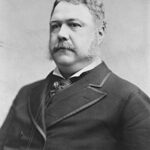The Decision That Changed Everything
President Chester A. Arthur signed the Pendleton Civil Service Act on January 16, 1883. This decision marked a complete reversal from his previous political career. Arthur had benefited from New York’s corrupt patronage system for decades. 📊 The legislation created the Civil Service Commission to oversee federal hiring. It required competitive examinations for government positions. Merit replaced political connections as the primary hiring criterion.
Breaking the Spoils System
The “spoils system” had dominated federal employment since Andrew Jackson’s presidency. Politicians rewarded loyal supporters with government jobs regardless of qualifications. ⚠️ This system bred corruption and inefficiency throughout federal agencies. Arthur understood these problems firsthand from his customs house experience. The Garfield assassination by a disappointed office-seeker created public demand for reform.
Creating Modern Government Standards
The Pendleton Civil Service Act initially covered only 10% of federal positions. However, it established permanent principles for professional government service. 💰 The act prohibited political assessments from federal employees. It protected workers from partisan political pressure. These reforms laid the foundation for today’s professional civil service system.
Impact:
Immediate Political Consequences
Arthur’s support for civil service reform stunned Republican Party leaders completely. 🔥 His own political allies felt betrayed by this unexpected transformation. The President had essentially dismantled the system that brought him to power. Political bosses lost their primary method of rewarding faithful party workers. Arthur’s decision cost him renomination prospects in 1884. However, it earned him widespread public respect and historical acclaim.
Long-term Government Transformation
The Pendleton Civil Service Act fundamentally changed American government operations permanently. 📈 Subsequent presidents expanded merit-based hiring to additional federal positions. By 1900, over 40% of federal jobs required competitive examinations. The reform improved government efficiency and reduced political corruption significantly. Professional expertise replaced political loyalty as the hiring standard. This transformation created the modern administrative state we know today.
Lasting Historical Legacy
Historians consistently rank the Pendleton Civil Service Act among America’s most important reforms. 🌍 The legislation influenced civil service systems worldwide during the Progressive Era. It demonstrated that meaningful political reform was possible despite entrenched interests. Arthur’s courage in supporting reform against his party’s wishes exemplifies principled leadership. The act remains the foundation of federal employment practices over 140 years later.
